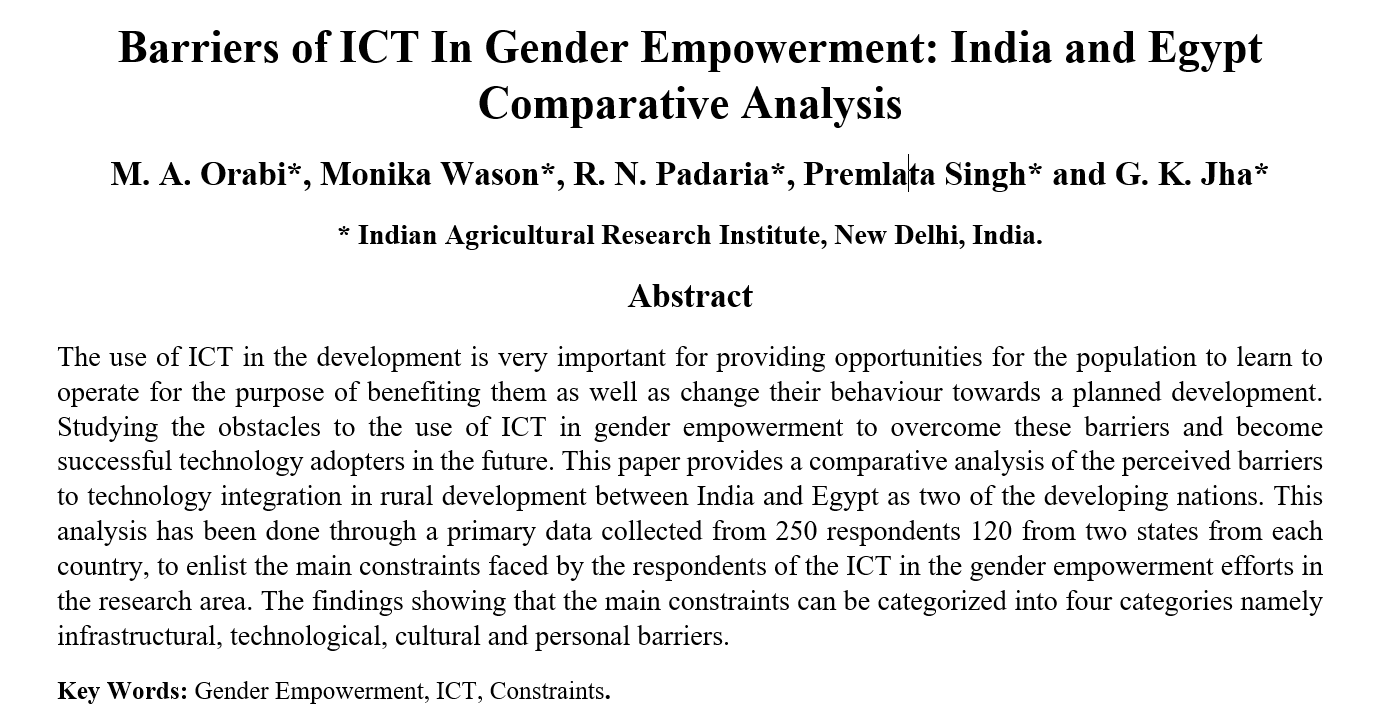The use of ICT in the development is very important for providing opportunities for the population to learn to operate for the purpose of benefiting them as well as change their behaviour towards a planned development. Studying the obstacles to the use of ICT in gender empowerment to overcome these barriers and become successful technology adopters in the future. This paper provides a comparative analysis of the perceived barriers to technology integration in rural development between India and Egypt as two of the developing nations. This analysis has been done through a primary data collected from 250 respondents 120 from two states from each country, to enlist the main constraints faced by the respondents of the ICT in the gender empowerment efforts in the research area. The findings showing that the main constraints can be categorized into four categories namely infrastructural, technological, cultural and personal barriers.


